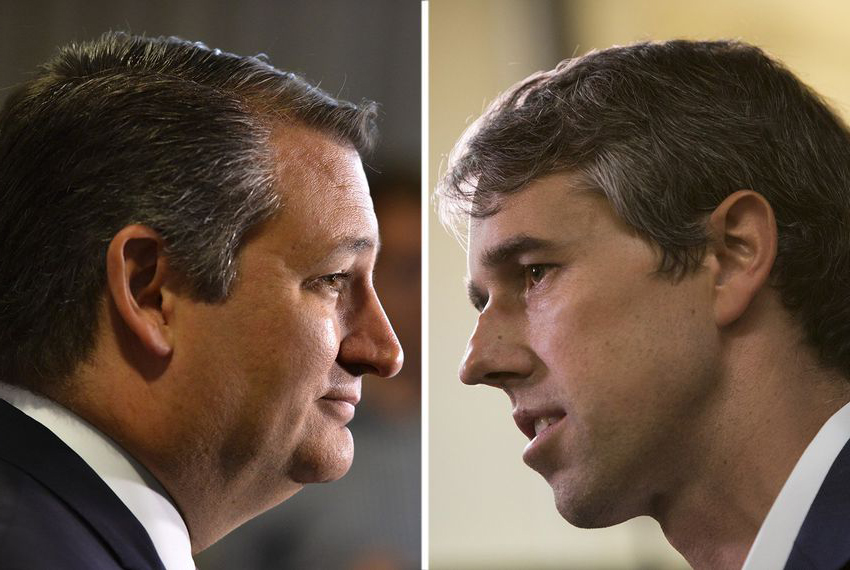By: Kevin D. Williamson – wsj.com – April 27, 2018
Why is Ted Cruz only up by three points? Remember, the Lone Star State has six of the 20 largest U.S. cities.
Dallas
Sen. Ted Cruz and his fellow Texas Republicans have four big problems: Houston, Dallas, San Antonio and Austin.
Texas may be famous for wide-open spaces, but the people—and the economic output—are increasingly concentrated in its major metropolitan areas. Of those four big cities at their heart, not one has a Republican mayor: Three have Democrats, and one (San Antonio) has a nominal independent who vibrates on Elizabeth Warren’s progressive frequency. The biggest Texas city in the GOP’s mayoral column today is Fort Worth.
Of the nation’s 20 largest cities, one is in New York and four are in California. Six are in Texas. El Paso has surpassed Boston and Washington, and San Antonio now has twice the population of Seattle.
Eighty-eight percent of Texans live in urban areas. Immigration, both domestic and international, brings some 250,000 new residents to Texas every year, and a wide majority of them land in one of the major metros. The Texas Demographic Center expects the state’s urban population to double in the next 40 years, while the less densely populated counties in West Texas and the Panhandle will lose population.
Republicans are at a disadvantage in Texas cities, and that reflects national trends. Only a handful of major U.S. cities routinely elect Republican mayors: San Diego and Miami now lead that little pack, New York’s Giuliani-Bloomberg run having played out. The simple fact is that Democrats have most major U.S. cities effectively locked up. The last Republican mayor of Philadelphia was born in 1880.
Democrats know where they live. Los Angeles Mayor Eric Garcetti is being floated as a presidential contender on the theory that in terms of executive experience he has a bigger portfolio than most governors. Even conservative commentators such as George Will admit there’s something to that argument.
During the 2016 Republican presidential primary, Mr. Cruz sneered at Donald Trump for his “New York values,” by which he meant Mr. Trump’s long history of squishiness on both the so-called social issues and bedrock conservative concerns such as gun rights, as well as his libertine ways and vulgarity. When the Texan made those remarks, New York had only two years before said goodbye to Mayor Mike Bloomberg, a mostly moderate businessman who had twice run as a Republican. Mr. Cruz’s hometown of Houston, in contrast, had just seen off Mayor Annise Parker, a culture-war Democrat who had made transgender issues a centerpiece of her administration—and who had gone so far as to subpoena the sermons of Houston pastors in a naked attempt to bully them on the issue.
There is more to New York than Mr. Trump and his milieu, something Mr. Cruz must have noticed as he at least passed through the city on his way from Princeton to Harvard to a marriage with a Goldman Sachs manager. And there is more to California than sanctuary cities and vegan meditation retreats. Any Republican governor in America would welcome Google, Facebook or Apple if they considered relocating to his state.
It is expensive to live in New York City or Palo Alto, Calif. Some of that is the result of high taxes and burdens put on new residential construction, but it’s mostly because people want to live there. Big cities in Texas are growing for the same reason. People like what they have to offer—jobs, yes, but also educational opportunities, culture, entertainment, easy access to airports, and many other things that provide a full and satisfying life. It’s a self-perpetuating cycle: People move to cities because that’s where the people are.
All this helps explain why the Democrat challenging Ted Cruz for his Senate seat, Rep. Beto O’Rourke of El Paso, is polling only three points behind the incumbent. The political hounds in Austin and Houston don’t expect the Democrat to win this time—not just yet—but he’s already uncomfortably close. And Mr. O’Rourke’s support isn’t coming from West Texas cotton farmers. Drive through the up-and-coming Winnetka Heights section of Dallas and it’s a sea of “BETO” signs, with not a whiff of Ted Cruz, one of the most consequential figures in contemporary American politics.
Mr. Cruz hasn’t changed: He’s still a guy who pretends to be a good ol’ boy by day while reading Bastiat at night. The Democrats haven’t changed, either: Mr. O’Rourke is a fresh face with a stale agenda, offering up the familiar and bland welfare corporatism his party has been selling for 30 years. If he has any big new ideas for American cities, he’s keeping them to himself.
What’s changing is Texas. Republicans are going to have to figure out how to talk to city-living and city-loving voters if they hope to keep up.
To see this article, click read more.
Source: Republicans Do Well in Texas. Except for Dallas, Houston, Austin
 Listen Online
Listen Online Watch Online
Watch Online Find a Station in Your Area
Find a Station in Your Area










 Listen Now
Listen Now Watch Online
Watch Online
